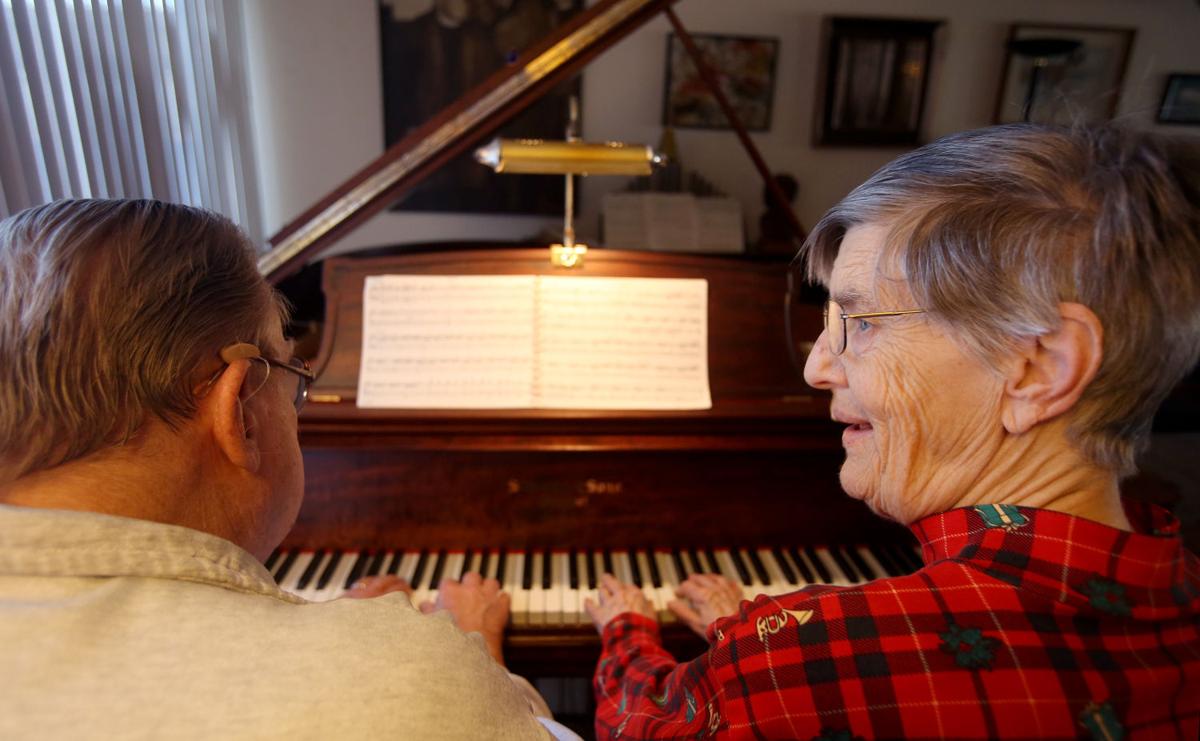Part seven of 12.
My wife and I both specialized in music when we were in college, and we both went on to teach high school music for a time. Later, Joan took up the pipe organ and for most of her life has enjoyed playing for church services as well as at other events. Joan can certainly be regarded as a professional musician, albeit of much less capability than one might see on the concert stage.
We still often listen to music and play, performing in public on occasion. However, even in this important part of our lives, problems arise that need solutions.
Music teachers will always say “practice makes perfect.” It doesn’t work that way any more. Fairly early on, Joan would recall during rehearsal little changes we made to polish a selection, but by the time it came to perform, she forgot those nuances. She would play everything as if it were the first time through! This became critical when she was playing for a soloist or a choir. There was no compromise available, so Joan had to abandon her accompanist work.
We have always played together — piano duets or piano-organ duets — and still do. When we play duets I am sometimes able either through hand motions or other signals to insert some points of expression.
Joan has always been a fine sight-reader and certainly still enjoys playing, but now she plays only what the composer has set down. (A composer once told me that what he writes is an important but often imprecise guide, so the player must contribute and interpret, to express more fully what he could not put on paper.)
A pianist needs to be able to read “rests” as well as the notes. Joan seems to have lost part of that critical skill. In playing duets, one performer often stops for a time while the other takes the lead. The silent pianist has to count rests, and for her, counting more than a single measure seems confusing. Well, the repertoire has changed for us! We just select duets where her part doesn’t have those confusing rests. There are still many fine duets we can play, at least well enough for our at-home audience of two.
We have old arrangements of Beethoven symphonies for four hands. Don’t cringe, musicians — before recording was invented masses of people had access only to their piano to reveal at least something of the sound of the rich repertoire. It’s still for a pianist to pretend he’s an orchestra! We make hash of the Fifth Symphony (ba-ba-ba-BOOM!) but we like to try, and sometimes it sounds pretty good.
While Joan loves to play, she will never say she wants to. Further, she cannot make a decision about what to play. I must choose. She’ll say she doesn’t want to, or she can’t, then go ahead and play just fine. In fact, a friend recently said Joan got a look of sheer joy on her face while she was playing.
She obviously loves listening to music as much as ever, particularly music from the classical or romantic periods. As we are driving around town, and especially on longer trips, it’s fun to watch her move her hands in time to the music on the radio or CD player. Music in churches is still special. She finds the hymns by page number and sings along on every verse. She has a good voice! If an adult care home really wants to impress us, let’s hear Haydn or Handel or Rachmaninoff or Tchaikovsky on the speakers, rather than elevator music.
Some say, for Alzheimer’s sufferers, musical experiences from early life seem to remain longer than other experiences. We hear examples of talents re-emerging and songs recalled after all seemed gone, and observers are often amazed.
Many have pointed out that music and song will brighten the day when nothing else does. The power of that special language has been very important to Joan.
Tomorrow: Obsessions.





